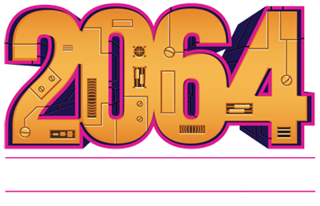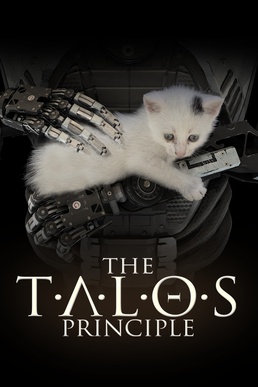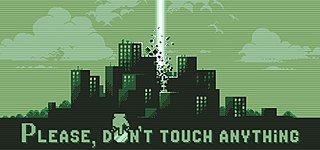
Sphinx and the Cursed Mummy is a 2003 action-adventure video game developed by Eurocom and published by THQ for GameCube, PlayStation 2, and Xbox. A version for mobile phones was released in 2004. THQ Nordic published a high-definition remaster for personal computer systems in 2017, and Nintendo Switch in 2019.

World of Goo is a physics-based puzzle video game developed and published by independent game developer 2D Boy. The game was released on Microsoft Windows and Wii on October 13, 2008, with releases on Nintendo Switch, Mac OS X, Linux, and various mobile devices in subsequent years. World of Goo has the player use small balls of goo to create bridges and similar structures over chasms and obstacles to help other goo balls reach a goal point, with the challenge to use as few goo balls as possible to build this structure.
Ronimo Games was a Dutch video game developer founded in 2007 by former students of the Utrecht School of the Arts.

Legend of Grimrock is a 2012 action role-playing game video game developed and published by Almost Human. The title is a 3D grid-based, real-time dungeon crawler based on the 1987 game Dungeon Master. It was released for Windows in April 2012, OS X and Linux in December 2012, and iOS in May 2015. A Nintendo Switch port will be released 15 January 2024.

Little Inferno is a puzzle video game developed and published by American independent game developer Tomorrow Corporation. The game was released for the Wii U in November 2012 in North America, Europe and Australasia. Microsoft Windows, iOS, OS X, Linux and Android versions followed throughout 2013. A Nintendo Switch version was released in March 2017 in North America, Europe and Australia.

Wizorb is a video game created and published by Tribute Games. It was released on the Xbox 360 Xbox Live Marketplace on September 29, 2011. The gameplay is a cross between a Breakout clone and a role-playing video game. Wizorb was ported to Microsoft Windows, Mac OS X, and Linux. It was released for Windows through Steam on March 14, 2012, with added achievements and cloud storage. Upon release, Wizorb saw favorable reviews from critics, with VentureBeat's Jacob Siegal listing it as one of the top 10 independent video games of 2011.

2064: Read Only Memories is a cyberpunk adventure game developed by MidBoss. It was directed by John "JJSignal" James, written by Valerie Amelia Thompson and Philip Jones, and features an original soundtrack by 2 Mello.

The Talos Principle is a 2014 puzzle video game developed by Croteam and published by Devolver Digital. It was simultaneously released on Linux, OS X and Windows in December 2014. It was released for Android in May 2015, for PlayStation 4 in October 2015, for iOS in October 2017, for Xbox One in August 2018, and Nintendo Switch in December 2019. Virtual reality-enabled versions for the Oculus Rift and HTC Vive were released on 18 October 2017. A DLC entitled Road to Gehenna was released on 23 July 2015.

Windosill is a 2009 puzzle video game by Vectorpark for Microsoft Windows, OS X, Linux, web browsers, and iOS. The player advances through eleven different rooms by interacting with each level's environmental objects. It was developed by Patrick Smith, an artist who taught himself to animate and program the game in Adobe Flash. He was inspired by a variety of painters and artists. The game was first released for Windows, OS X, and web browsers in 2009, and was later ported to the iPad in 2011, with several added features.

Thumper is a rhythm game developed and published by Drool and released in October 2016 on Microsoft Windows and PlayStation 4, with optional virtual reality (VR) support for the Oculus, HTC Vive, and PlayStation VR headsets. It was later released on the Nintendo Switch in May 2017, the Xbox One in August 2017, iOS in January 2018, Oculus Go in September 2018, Android in February 2019, Oculus Quest in May 2019, and Stadia in November 2019. The game was shown at the Experimental Game Workshop during the 2015 Game Developers Conference.

Human Resource Machine is a visual programming-based puzzle video game developed by Tomorrow Corporation. The game was released for Microsoft Windows, OS X and Wii U in 2015, being additionally released for Linux in March 2016, for iOS in June 2016, for Android in December 2016 and for the Nintendo Switch in March 2017. Human Resource Machine uses the concept of a corporate office worker assigned to perform tasks that involve moving objects between an inbox, an outbox, and to and from storage areas as a metaphor for assembly language concepts. The player works through some forty puzzles in constructing a program to complete a specific task.

Everspace is a 3D space shooter with roguelike elements developed and published by German studio Rockfish Games. It was released in 2017. A sequel, Everspace 2 was released in 2023.

Sokobond is a puzzle video game created by Alan Hazelden and Harry Lee. The game was released on Linux, OS X, Windows-based personal computers in August 2013. It was later released for Nintendo Switch in September 2021.

Please, Don't Touch Anything, later re-released as Please, Don't Touch Anything: Classic on the Nintendo Switch in Europe and North America, is a puzzle video game developed by Russian indie studio Four Quarters and published by Bulkypix and Plug In Digital. It was released on March 26, 2015 on Steam for Windows, Mac OS X and Linux, and on October 21, 2015 for iOS. It received a remake with virtual reality support, Please, Don't Touch Anything 3D, that was co-developed with Escalation Studios and released on December 7, 2016 on Steam for Windows and Mac OS X. An enhanced port of Please, Don't Touch Anything was released for Nintendo Switch on November 22, 2018 with updated graphics and more solutions.

Opus Magnum is a puzzle-based programming game developed by Zachtronics. It was released for Microsoft Windows, Linux, and Mac in December 2017, following about two months of early access. In the game, the player must assemble a series of machines using various tools and program them to complete alchemy-related tasks. The player can advance with any working solution to each problem, but is challenged through leaderboards to produce a machine that does the task in the shortest time, with the lowest cost of materials, and/or the smallest occupied area. Opus Magnum is based on The Codex of Alchemical Engineering, one of the earliest Flash games made by Zach Barth prior to establishing Zachtronics.

Human: Fall Flat is a puzzle-platform game developed by No Brakes Games and published by Curve Digital. It was initially released for Microsoft Windows, macOS, and Linux in July 2016, and received ports for PlayStation 4, PlayStation 5, Xbox One, Xbox Series X/S, Nintendo Switch, Google Stadia, and iOS and Android over the next several years.

Bridge Constructor Portal is an engineering simulation and puzzle video game developed by ClockStone and published by Headup Games. The game is part of the Bridge Constructor series, and incorporates elements of Valve's Portal series, taking place in Aperture Laboratories. The game was released on Android, iOS, Linux, macOS and Windows in December 2017, and for the Nintendo Switch, PlayStation 4, and Xbox One in February 2018. By August 2018, the game had sold over 500,000 copies.
Superliminal is a 2019 surreal puzzle video game released by Pillow Castle Games. The game, played from a first-person perspective, incorporates gameplay elements around optical illusions and forced perspective; notably, certain objects when picked up can be moved towards or away from the player, but when placed back down, scale to the size as the player had viewed them, enabling the player to solve puzzles to complete the game.

Carrion is a horror video game developed by Phobia Game Studio and published by Devolver Digital. Described as a "reverse-horror game", the game allows players to control a tentacled monster whose objective is to make its way through a facility, stalking and killing humans in its path.
Scribblenauts is a series of action puzzle video games primarily developed by independent studio 5th Cell. The series is owned and published by Warner Bros. Interactive Entertainment. The first game in the series was titled Scribblenauts and was first released on September 15, 2009, in North America, exclusively on the Nintendo DS. Since the release of the first game, five other Scribblenauts games have been released, in addition to two compilations and two comic adaptations.

















